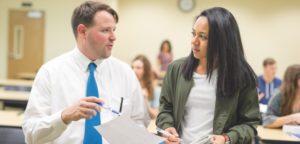
The Daily Quiz
I use a daily quiz that has a two-fold purpose: first, it tests the students’ knowledge of the day’s reading material; and second, it provides a focus for the lecture and activities scheduled that day in class. Whether attendance is required or just encouraged, a











